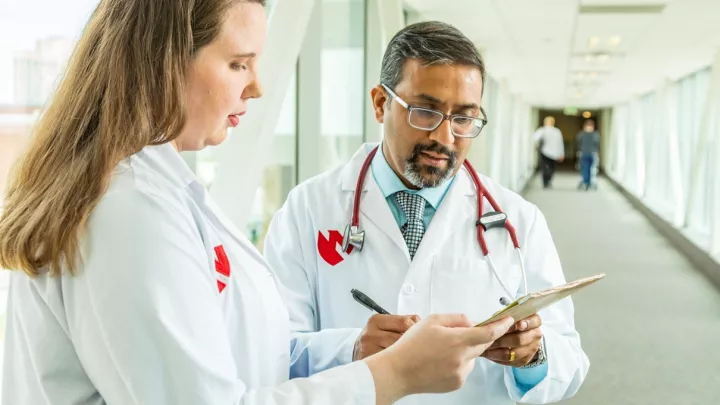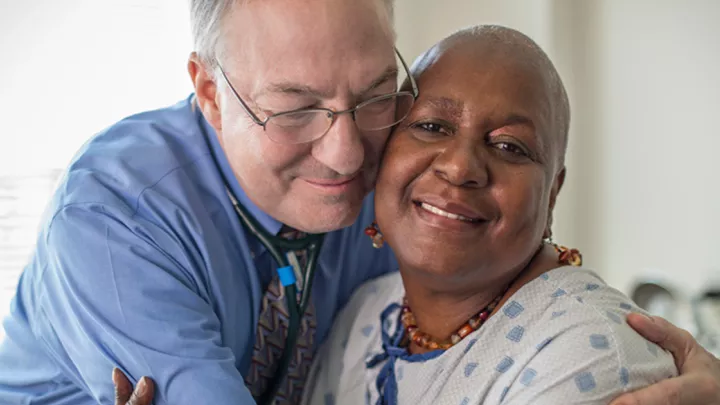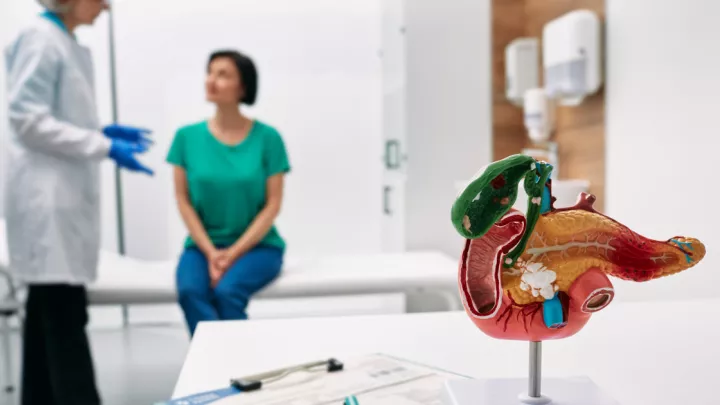Transforming the language of care

Courtesy of UNMC Strategic Communications: Story by Kalani Simpson with Melissa Contreras-Nourse; Photography by Kent Sievers; Videography by Rich Watson
Diversity of clinical trials is crucial to new cancer therapies.
Maria Alvarran travels from Sioux City, Nebraska, every three months to visit the Fred & Pamela Buffett Cancer Center in Omaha, Nebraska. Alvarran is helping research be the best it can be. How? By bringing diversity to potential cancer therapies.
She’s part of a clinical trial in which participants receive investigational drugs, devices or tests under a doctor’s supervision.
Alvarran doesn’t speak English. By bridging the language gap, she and University of Nebraska Medical Center/Nebraska Medicine staff work together, so the latest treatments are open to everyone.
It’s important for medical staff, patients, and their families to understand one another. Some things can take longer – but it’s worth the effort.
“There may be extra things we both have to do,” says Matthew Lunning, DO, who is the doctor in charge of Alvarran’s trial. For example, during a recent appointment, an interpreter spoke with Alvarran via a handheld tablet. It’s important to work as a team, Dr. Lunning says. Communication should not be a barrier but a goal.
Privacy laws prevent sharing specifics about her clinical trial. But Alvarran says she feels better since enrolling. She and her family say they are grateful to be moving research forward and helping others.
Investigators like Dr. Lunning are grateful, too. From their perspective, they feel they can’t discover the answers they are seeking or the best cure for everyone if they only work with people who are all the same.
Alvarran is helping researchers find answers, in two languages. She and patients like her are important partners in making sure that future cancer therapies work for people of all backgrounds.
The Fred & Pamela Buffett Cancer Center is a founding member of the Big Ten Cancer Research Consortium. Together, the Big Ten cancer centers support the work of more than 3,000 cancer researchers, care for 75,000 new cancer patients each year, and enroll more than 30,000 patient volunteers in cancer clinical trials.







